Fanes and Col Bechei
Fauna and Habitat
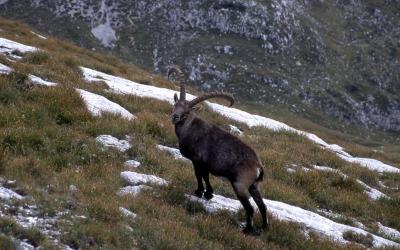
Ibex
Ibex (Capra ibex)
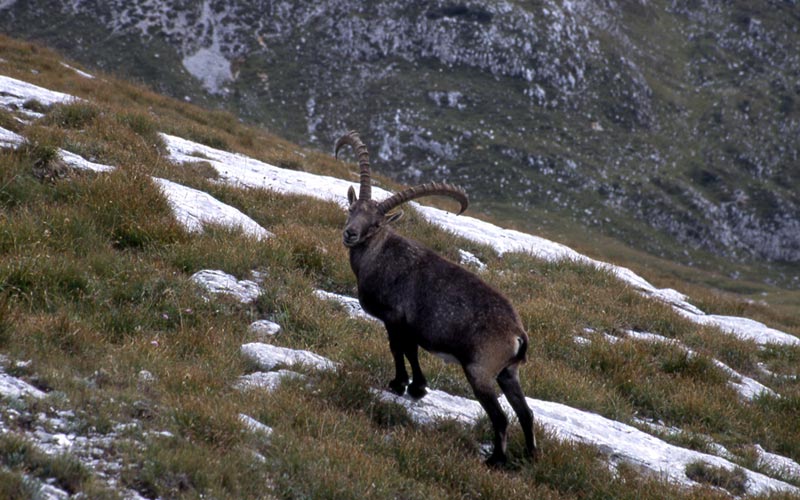
The ibex was reintroduced on the Croda Rossa massif in the 1970s and its population, which had exceeded 70 individuals, has fluctuated because of diseases and shooting in the Alto Adige. Today's colony of about 20 individuals has been repopulated since 2008 after risking local extinction and gravitates between Croda del Becco and Piccola Croda Rossa.
×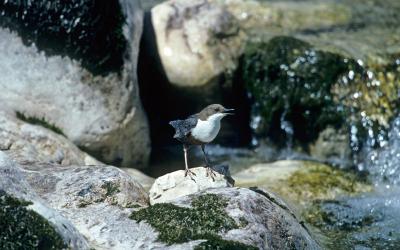
European Dipper
European Dipper (Cinclus cinclus)
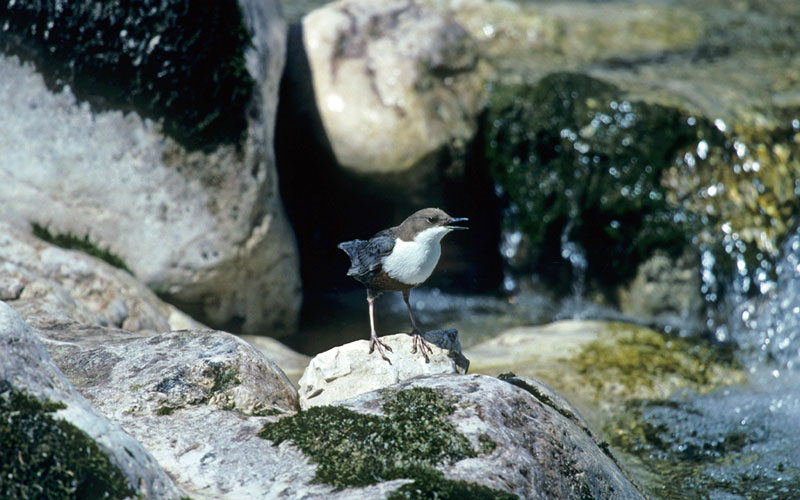
Travellers ascending by the waters of Fanes and Travenanzes Valleys, as well as the Boite and Felizon valley, can often meet this beautiful aquatic bird, diver par excellence. Skilful fisher, it dives against the turbulence of the rapids or flies just a few centimetres above the white waters. It is an indicator of good quality water.
×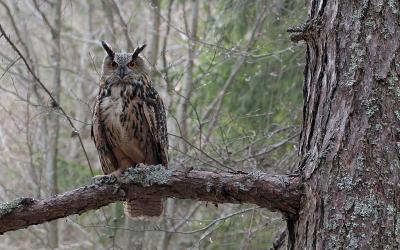
Eagle owl
Eagle owl (Bubo bubo)
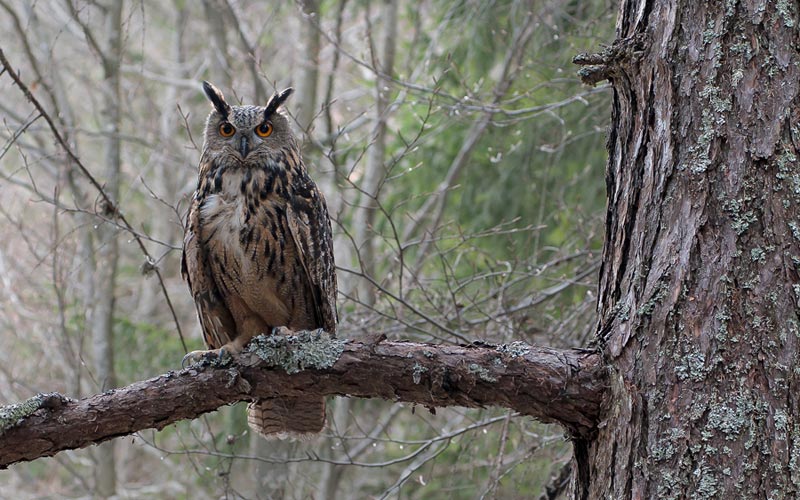
This species is considered among the rarest and most endangered of Ampezzo birds; it is a EU-registered species of environmental interest and requires utmost protection. It is estimated that 2-3pairs of eagle owl are present in the Ampezzo area on the shady, rocky slopes of the bottom of the valley where they find congenial gorge habitats, like the gorges at the confluence of the Fanes, Boite, and Felizon valleys.
×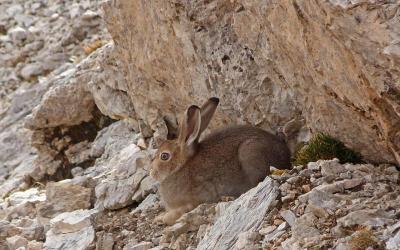
Mountain hare
Mountain hare (Lepus timidus)
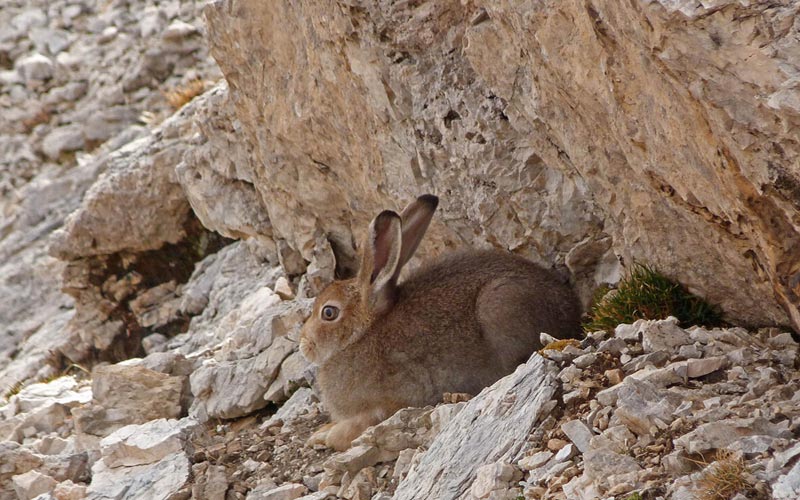
The large rock boulders left by retreating glaciers in the mountain passes are the preferred habitat of the mountain hare, among the most typical mammals of high altitudes, renowned for their white winter coat. As they live above the tree line, they need frequent access to shelters in their territory, therefore they prefer areas rich in rocky boulders and tunnels with protected spaces where they can take shelter.
×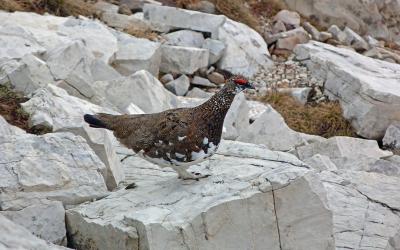
White ptarmigan
White ptarmigan (Lagopus mutus)
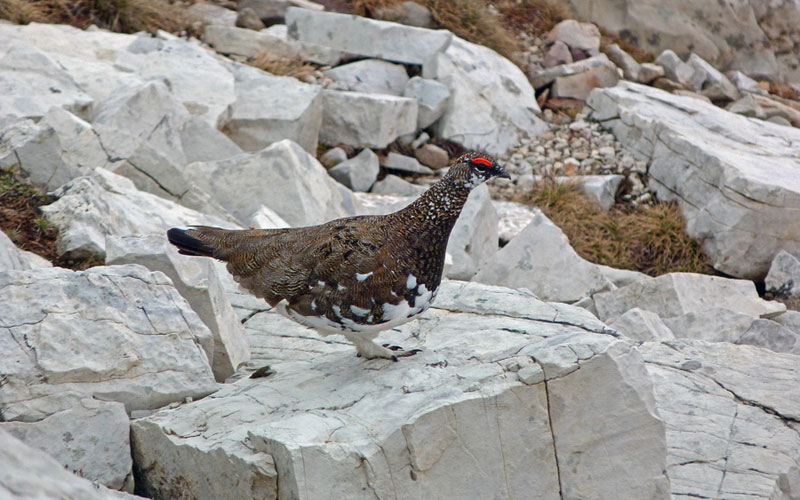
This species appeared on the Alps during the Ice Ages and has since remained confined to the highest altitudes where some vegetation is present. Like other Arctic species it is characterized by moulting to white in winter. The ptarmigan has become rarer and more vulnerable due to global warming, which progressively reduces the extension of its habitat – dwarf willows and discontinuous grassy mounds of snow valleys. In Ampezzo, the northern slopes of Averau, Nuvolau and Col dei Bòs are the most suitable areas for this species.
×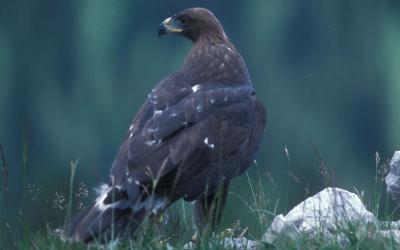
Golden eagle
Golden eagle (Aquila chrysaëtos)

The noblest bird of prey of the Alpine fauna is often observed on the sunny slopes and pastures of Ampezzo Dolomites where it usually hunts and sometimes also nests. On the walls of Mt. Croda Rossa, Tofana and Cristallo there are some nesting sites that the eagle occupies on alternate years in its home range. One massif can host only a pair of eagles; the Ampezzo Dolomites host three pairs in total.
×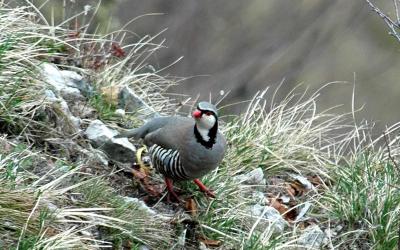
Rock Partridge
Rock Partridge (Alectoris graeca)
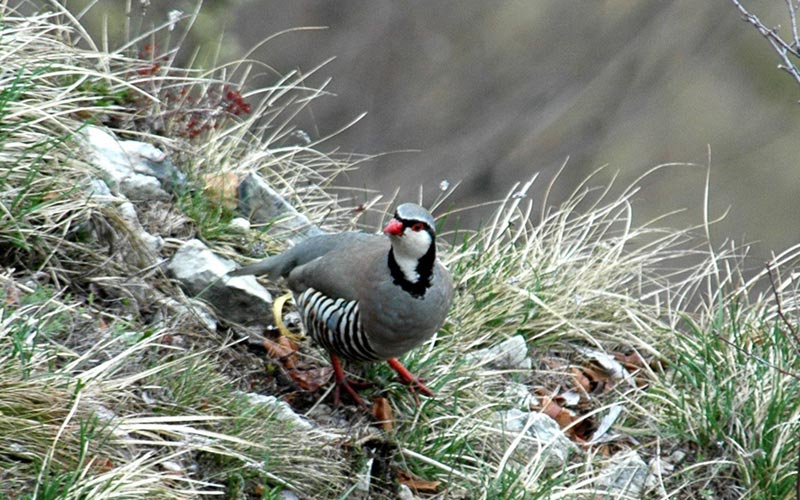
Unlike other Alpine galliformes, the rock partridge does not originate from the cold boreal forest, but from the Mediterranean mountains and is strictly linked to warm, sun-facing, rocky grassland habitats. This species is rare in the Ampezzo Dolomites and vulnerable because its habitat is shrinking due to spontaneous afforestation. The steep prairies ("Pales") of Zumèles and Perósego are the preferred habitat of this species.
×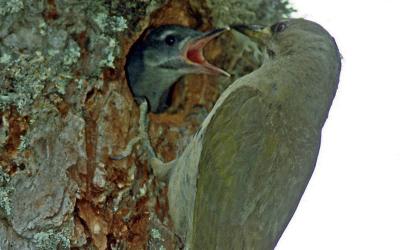
Grey-headed woodpecker
Grey-headed woodpecker (Picus canus)
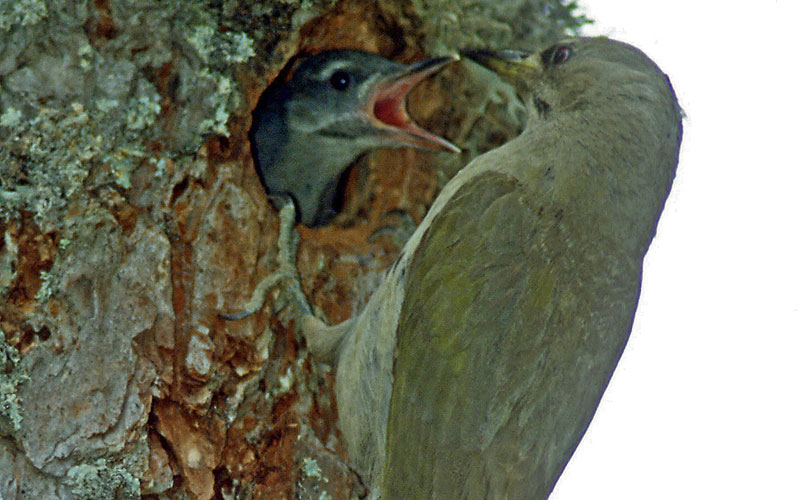
Like all woodpeckers, this bird feeds on xylophagous insects that it extracts from the tree trunks which it hollows to build its nest. Unlike other woodpeckers, however, the grey-faced bird nests in isolated trees at the edge of the forest, rather than in the dense centre. Its favourite habitat is the upper tree belt, at the foot of Mt. Pomagagno and Pales de Zumeles.
×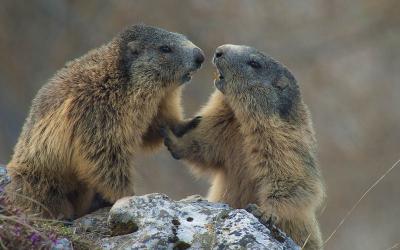
Marmot
Marmot (Marmota marmota)
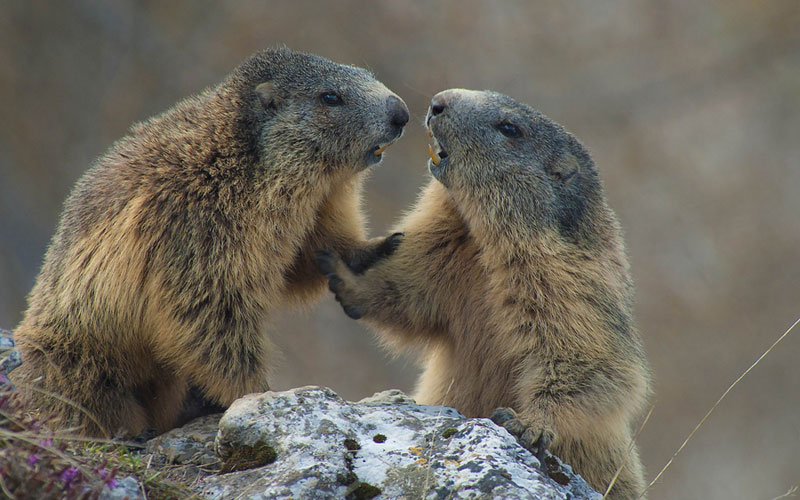
Typical inhabitant of high altitude grasslands with a minimum soil depth, this rodent feeds on grass and roots. Marmots live in family units, dig complex systems of underground burrows in meadows that offer shelter, and spend the winter in hibernation. Together with the Falzarego grasslands, the Valparola and Intrà i Sas area is one of the most densely populated by marmots.
×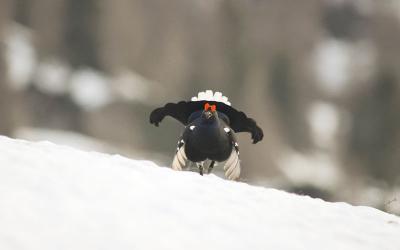
Black grouse
Black grouse (Tetrao tetrix)
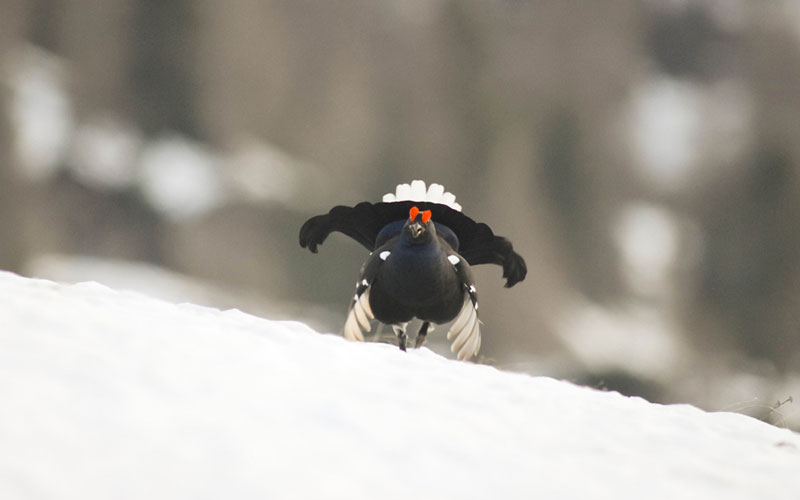
The most common of the Alpine galliformes lives at the upper limit of the forest and feeds on blueberries, shoots of heathers and conifers. However, it is not easily seen because it lives in areas rarely visited by tourists and moves at dusk. It nests on the ground, like the other galliformes, and this makes it vulnerable to predators and easily disturbed by unleashed dogs or anyone hiking off path. Male ritual displays and fights in the lecking arenas are very impressive spring events.
×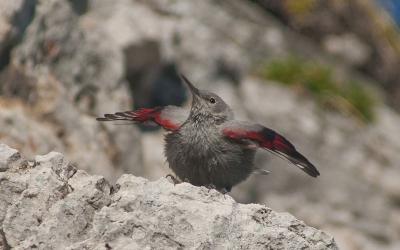
Wall creeper
Wall creeper (Tichodroma muraria)
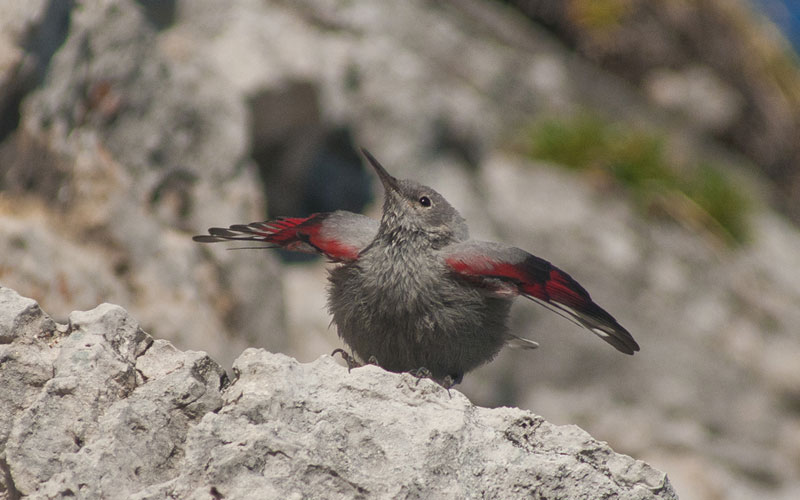
This is not a real woodpeckers, but a small passerine with elongated beak and fluttering wings, perfectly suited to live and fly on the rocky walls. It nests in the overhanging niches and feeds on spiders and insects found in the rock fissures. The sunny rock faces of Cinque Torri are the favourite habitat of this multicoloured bird, with grey and red plumage.
×